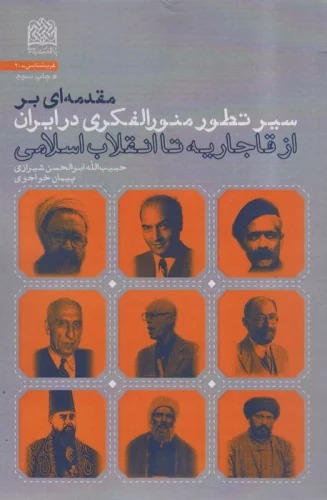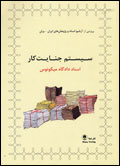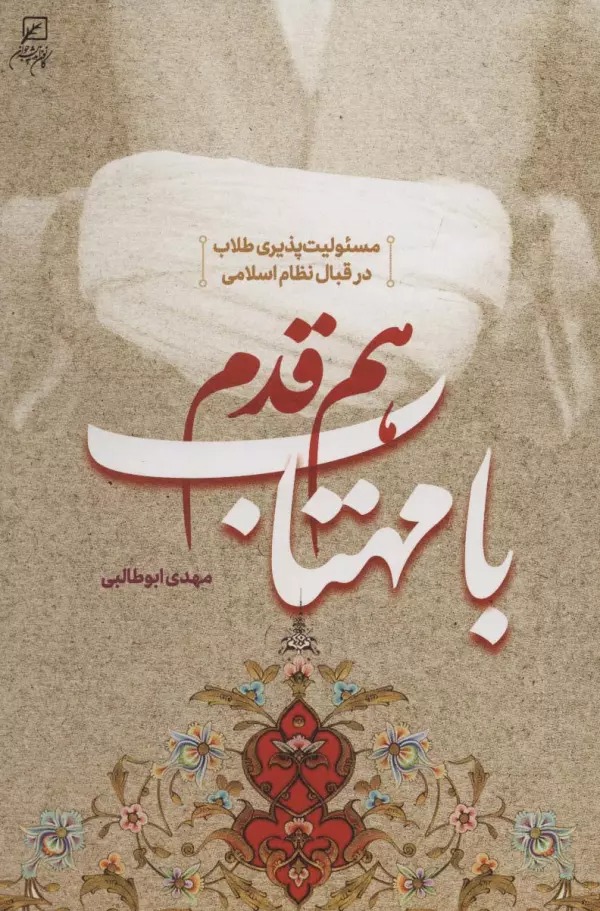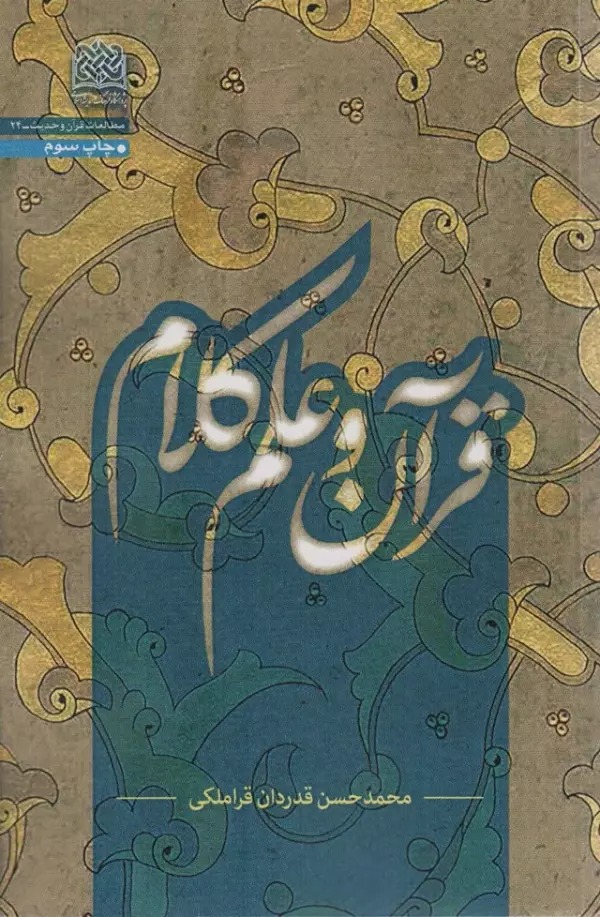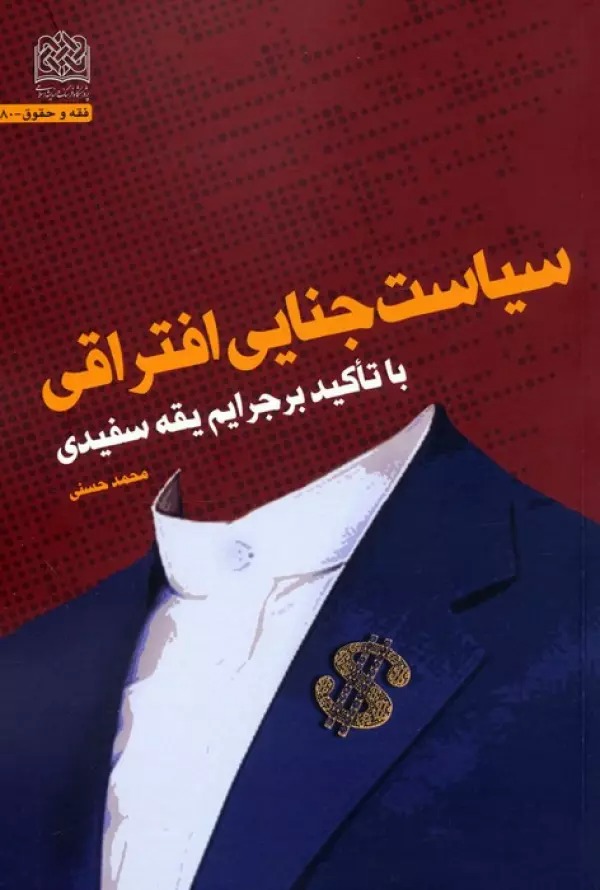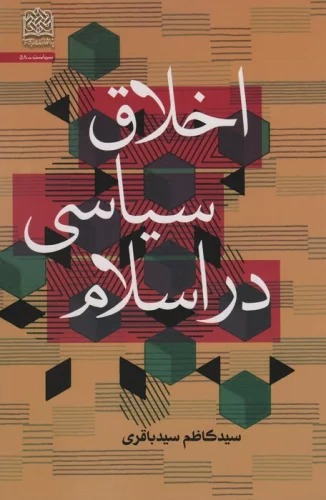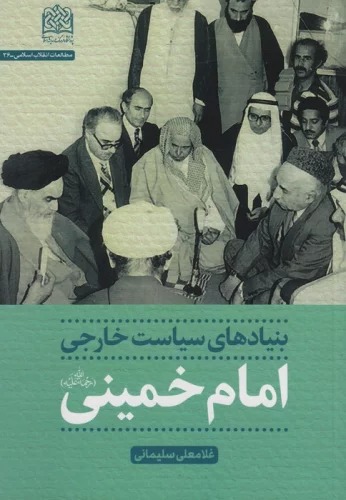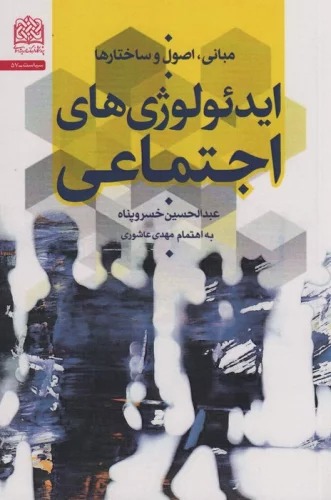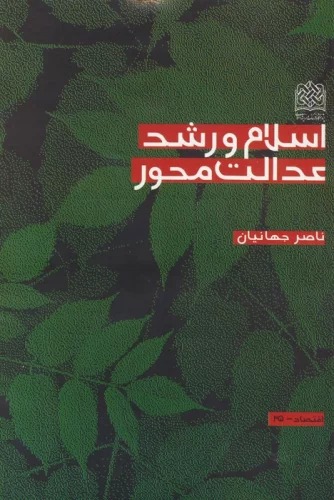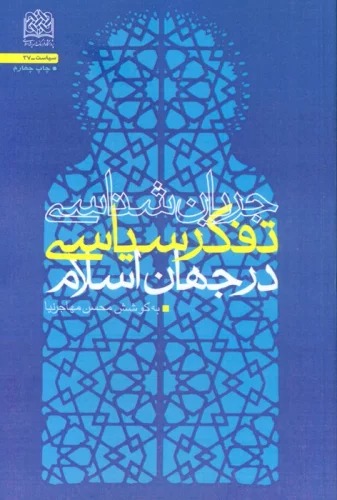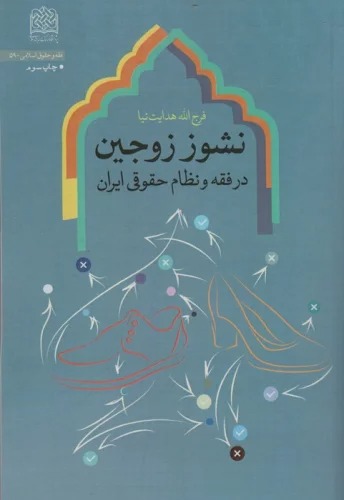Muqaddamah'ī bar Sayr-i Taṭavur-i Munavar'Al-fikrī dar Īrān (Az Qājārīyah tā Inqilāb-i Islāmī): Persiska (Farsi) 2023
مقدمه ای بر سیر تطور منورالفکری در ایران (از قاجاریه تا انقلاب اسلامی)
17,17 $
Dela
Wishlist
Originaltitel:
مقدمه ای بر سیر تطور منورالفکری در ایران (از قاجاریه تا انقلاب اسلامی)
ISBN:
9786001083365
Åldersgrupp:
Vuxen
Sidor:
302
Vikt:
327 g
Produktmått:
14 x 21 x 2
,
7 cm
Bokomslag:
Pocketbok
The book is an introduction to the evolution of intellectualism in Iran and has a new look at the issue of intellectualism and has tried to have a new process of the issue of Iranian intellectualism using discourse theory. The claim made in this book is that there is a significant relationship between the course of socio-political developments in Iran and the emergence of intellectual discourses. Intellectual discourses in Iran have emerged in the context of social-political phenomena, and the study of these ideas without considering this context, mainly leads the study to a deviation. Based on this, it seems that it is not possible to define Iranian intellectuals that can including all times and places; Rather, it should be searched for and defined in different discourses based on minimal signs. According to the authors of this book, the three factors of the power system, Islam and the West have played a special role in the emergence of political-social discourses in Iran. To achieve a stable and reliable understanding, as well as understanding different discourses, efforts have been made to explain the relationship of each of these discourses with these factors; This means that each of the intellectual discourses in Iran has its reaction towards Islam, the West and the ruling political system. On the other hand, critical view is the most important characteristic and tool of intellectuals' work. Criticism of intellectuals is generally focused on four elements of power, tradition, community, and history; the most important common tool in this path is rationality, with which we know intellectuals and intellectuals.
This book is arranged in 3 parts and 11 chapters. The first part is devoted to theoretical foundations in the form of 4 chapters; In the second part, intellectual discourses have been studied in the form of 6 chapters, and the third part, which has only one chapter, is dedicated to data analysis. The book "Introduction to the Course of Intellectual Development in Iran" has examined and analyzed the course of thinking and intellectualism in Iran from the Qajar era to the 1357 revolution. This book is the joint work of Habibullah Abolhasan Shirazi and Peyman Khajovi (researchers of the Western Studies Department of the Research Institute of Hikmat and Religious Studies). In our time, there are different and plural perceptions and analyses of intellectualism, its dimensions, works, sources, and results. On the one hand, Iranian intellectualism is reprehensible and rejected because of its homogenization with Western intellectualism, and on the other hand, it is the only way to untie the knot from the work of Iranians. The current book has a new look at intellectualism in its position and tries to have a new processing of Iranian intellectualism by using discourse theory.
more
کتاب مقدمه ای بر سیر تطور منورالفکری در ایران نگاه جدیدی به مسئلهٔ روشنفکری داشته و تلاش کرده با استفاده از نظریهٔ گفتمان، پردازشی نو از موضوع روشنفکری ایرانی داشته باشد. ادعای مطرحشده در این کتاب آن است که بین سیر تحولات اجتماعی ـ سیاسی ایران و ظهور گفتمانهای روشنفکری، رابطهٔ معناداری وجود دارد. گفتمانهای روشنفکری در ایران در بستر پدیدههای سیاسی ـ اجتماعی بروز و ظهور یافتهاند و مطالعهٔ این اندیشهها بدون در نظرگرفتن این بستر، عمدتاً مطالعه را به انحراف میبرد. بر این اساس به نظر میرسد، نمیتوان برای روشنفکری ایرانی، تعریفی ارائه داد که بتواند همهٔ زمانها و مکانها را در برگیرد؛ بلکه باید بر اساس نشانههای حداقلی، آن را در درون گفتمانهای مختلف جستوجو و از آن تعیین مراد کرد. بهباور نویسندگان این کتاب، سه عامل نظام قدرت، اسلام و غرب در ظهور گفتمانهای سیاسی ـ اجتماعی در ایران نقش ویژهای داشتهاند. برای دستیابی به فهمی پایدار و قابلاتکا و همچنین شناخت گفتمانهای مختلف تلاش شده است، نسبت هر یک از این گفتمانها با این عوامل بهخوبی تبیین شود؛ این بدان معنا است که هر یک از گفتمانهای روشنفکری در ایران واکنشی مختص به خود نسبت به اسلام، غرب و نظام سیاسی حاکم داشتهاند. از سوی دیگر نگاه نقادانه مهمترین ویژگی و ابزار کار روشنفکران است. نقد روشنفکران بهطورکلی به چهار عنصر قدرت، سنت، اجتماع و تاریخ معطوف است؛ چنانکه مهمترین ابزار معمول در این مسیر، عقلانیت است که روشنفکران و روشنفکری را با آن میشناسیم.
این کتاب در ۳ بخش و ۱۱ فصل تنظیم شده است. بخش اول در قالب ۴ فصل به مبانی نظری اختصاص داده شده است؛ در بخش دوم در قالب ۶ فصل گفتمانهای روشنفکری موردمطالعه قرار گرفته است و بخش سوم که تنها یک فصل دارد به تجزیهوتحلیل دادهها اختصاص یافته است. کتاب «مقدمهای بر سیر تطور منورالفکری در ایران» سیر تفکر و روشنفکری در ایران را از دورهٔ قاجاریه تا انقلاب ۱۳۵۷ بررسی و تحلیل کرده است. این کتاب اثر مشترک حبیب الله ابوالحسن شیرازی و پیمان خواجوی (محققان گروه غربشناسی پژوهشکدهٔ حکمت و دینپژوهی پژوهشگاه) است. در روزگار ما برداشتها و تحليلهای متفاوت و متکثری از روشنفکری، ابعاد، آثار، منابع و نتايج آن وجود دارد. روشنفکری ايرانی از يک سو به دليل همزادپنداری با روشنفکری غربی امری مذموم و مردود است و از موضعی ديگر تنها راهی است که گره از کار ايرانيان بگشايد. کتاب حاضر در جايگاه خود نگاه جديدی به روشنفکری داشته و درواقع تلاش کرده تا با استفاده از نظريه گفتمان، پردازشی نو از موضوع روشنفکری ايرانی داشته باشد.
more

